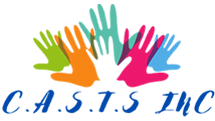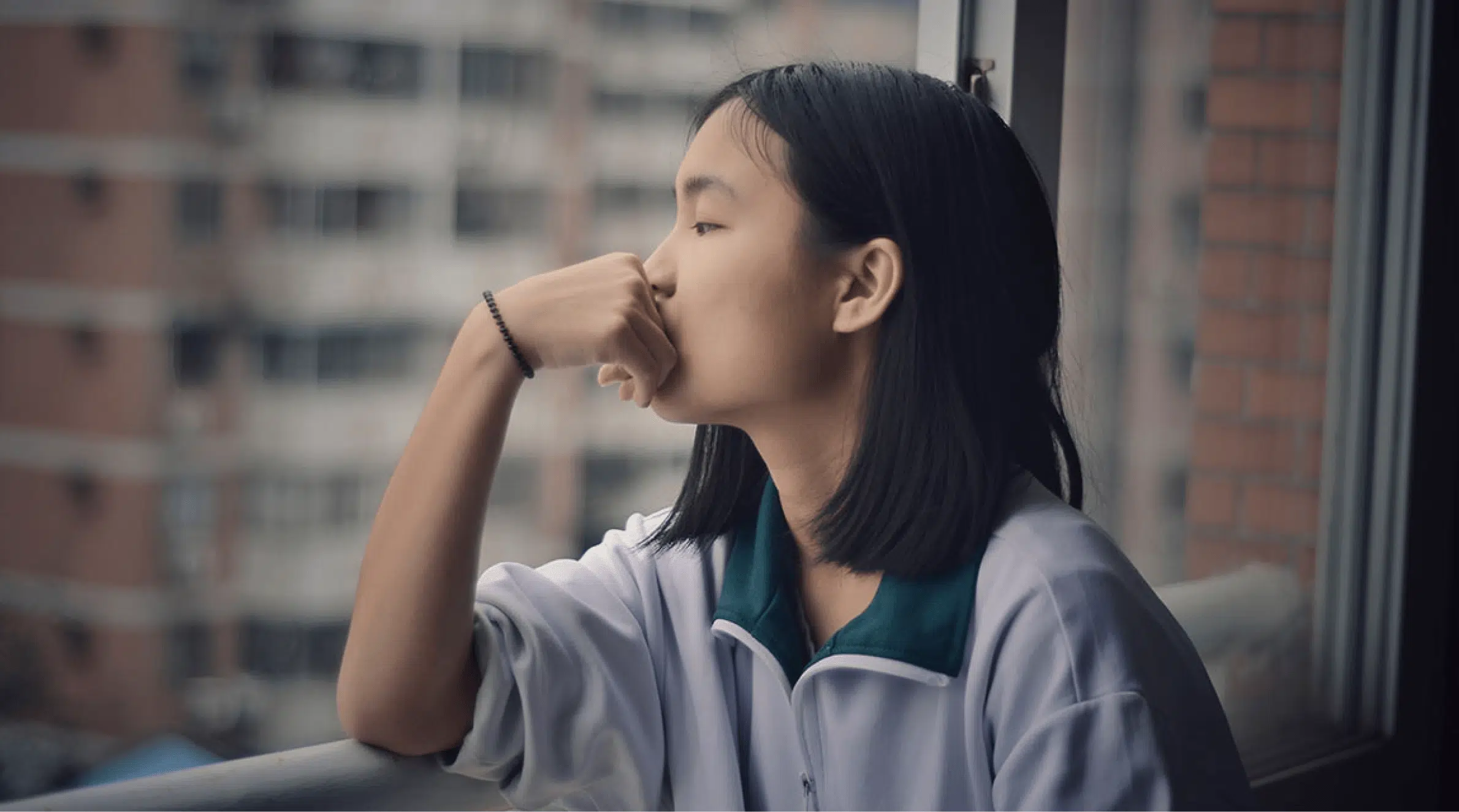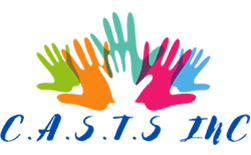Finding mental health services for teenagers can be a challenging and confusing process. CC At After School Therapy Services (CASTS), we are dedicated to helping families access the best teen mental health treatment, so parents can see their child start to thrive again.
Finding mental health services for teenagers can be a challenging and confusing process. At After School Therapy Services (CASTS), we are dedicated to helping families access the best teen mental health treatment, so parents can see their child start to thrive again.
The need for teen mental health treatment has been increasing over the past decade, and even more so since the pandemic began. Research shows that 15 percent of US teens suffer from depression, and 40 percent have symptoms of anxiety. And a 2022 survey found that nearly three-quarters of public schools have seen a rise in the number of students seeking mental health services.
Furthermore, emergency room visits for mental health issues in teens have increased by more than 30 percent in recent years. That’s because there is a limited number of professionals providing mental health therapy for teens. When families are unable to access adolescent mental health treatment, the ER is often the last resort.
The need for teen mental health treatment has been increasing over the past decade, and even more so since the pandemic began. Research shows that 15 percent of US teens suffer from depression, and 40 percent have symptoms of anxiety. And a 2022 survey found that nearly three-quarters of public schools have seen a rise in the number of students seeking mental health services.
Furthermore, emergency room visits for mental health issues in teens have increased by more than 30 percent in recent years. That’s because there is a limited number of professionals providing mental health therapy for teens. When families are unable to access adolescent mental health treatment, the ER is often the last resort.
How to Help a Teenager with Mental Health Issues
With a growing number of teens struggling with anxiety, depression, and trauma, thousands of parents are seeking information. Families want to understand how to deal with teenage mental health and how to know when mental health problems require treatment. And it can be difficult, if not impossible, to figure that out on your own.
The best way to help teens with mental health problems is to access professional support. The first step is a comprehensive evaluation with a child mental health specialist. The assessment will cover your teen’s emotional, behavioral, medical, educational, and social needs. Then the doctor or clinician can recommend options for therapy or a specialized treatment center for teen mental health.
Types of Teen Mental Health Treatment
There are variety of different mental health services for teens. The various programs and levels of care for addressing teenage mental health problems include:
Weekly Therapy
Weekly teen therapy and/or family therapy counseling sessions with a local or online therapist can be very beneficial. Therapy may include medication for mental health issues in teens.
Outpatient Care
Some adolescents need the support and structure of outpatient programming to effectively regain lost ground in terms of mental health, executive functioning, and academics. The number of days and hours per day of programming is based on the client’s clinical needs as well as their personal goals and the goals of the family.
Inpatient Treatment
Inpatient treatment refers to care delivered in a psychiatric hospital or the psychiatric unit of a hospital. This type of teen mental health treatment is typically used in crisis situations, and usually lasts for several days and no longer than 30 days. After inpatient care, teens are often referred to residential or outpatient treatment for continued healing.
Residential Teen Mental Health Treatment
For more severe diagnoses, residential mental health services delivered in a homelike setting are often the most effective option for achieving sustainable healing. Experts recommend longer stays in residential treatment in order to achieve successful outcomes. That’s because it takes time to uncover and heal the root causes of behavioral issues, especially when teens have co-occurring disorders like substance abuse or eating disorders (known as a dual diagnosis).
How to Help a Teenager with Mental Health Issues
With a growing number of teens struggling with anxiety, depression, and trauma, thousands of parents are seeking information. Families want to understand how to deal with teenage mental health and how to know when mental health problems require treatment. And it can be difficult, if not impossible, to figure that out on your own.
The best way to help teens with mental health problems is to access professional support. The first step is a comprehensive evaluation with a child mental health specialist. The assessment will cover your teen’s emotional, behavioral, medical, educational, and social needs. Then the doctor or clinician can recommend options for therapy or a specialized treatment center for teen mental health.
Types of Teen Mental Health Treatment
There are variety of different mental health services for teens. The various programs and levels of care for addressing teenage mental health problems include:
Weekly Therapy
Weekly teen therapy and/or family therapy counseling sessions with a local or online therapist can be very beneficial. Therapy may include medication for mental health issues in teens.
Outpatient Care
Some adolescents need the support and structure of outpatient programming to effectively regain lost ground in terms of mental health, executive functioning, and academics. The number of days and hours per day of programming is based on the client’s clinical needs as well as their personal goals and the goals of the family.
Inpatient Treatment
Inpatient treatment refers to care delivered in a psychiatric hospital or the psychiatric unit of a hospital. This type of teen mental health treatment is typically used in crisis situations, and usually lasts for several days and no longer than 30 days. After inpatient care, teens are often referred to residential or outpatient treatment for continued healing.
Residential Teen Mental Health Treatment
For more severe diagnoses, residential mental health services delivered in a homelike setting are often the most effective option for achieving sustainable healing. Experts recommend longer stays in residential treatment in order to achieve successful outcomes. That’s because it takes time to uncover and heal the root causes of behavioral issues, especially when teens have co-occurring disorders like substance abuse or eating disorders (known as a dual diagnosis).
Benefits of Teen Mental Health Treatment
There are many answers to the question “Why is adolescent mental health important?” Mental health support for teens is important and CASTS provides powerful and long-lasting benefits. Many families will see a difference right away in teens with mental health problems. And those positive changes and new skills provide a foundation for the future. Young people who receive caring and effective adolescent mental health treatment are empowered to move into the next stage of life with confidence, self-knowledge, and healthy coping skills.
Short-Term Benefits of Mental Health Services for Teenagers
- Enhanced interest in activities and social connections
- More energy and greater ability to relax and rest
- Improved concentration
- Better sleep and appetite
- Fewer feelings of worthlessness
- Significant reduction in suicidal thoughts and behaviors
- Stronger emotional regulation and executive functioning skills
Long-Term Benefits of Teen Treatment for Mental Health
- Ability to build authentic, trusting connections with self, peers, family, and their larger community
- Heightened sense of purpose and meaning, motivating engagement in academics and career planning
- Greater trust and support within the parent-child relationship
- Enhanced resilience and self-compassion
- Healthy coping and self-care skills
5 Questions to Ask When Researching Teen Mental Health Treatment
Families want the best care for their child, but it’s not always easy to identify which teen mental health treatment centers will provide safe, effective, and compassionate care. Here are some of the most important questions to ask.
Is your facility accredited by any organizations?
A program’s recognition by national accrediting bodies is a clear signifier of treatment quality. Look for accreditation from organizations such as The Joint Commission, the nation’s oldest and largest healthcare accreditation body. Affiliations with respected organizations in the field also indicate that a treatment program is trustworthy and is held accountable.
Does insurance cover your programs?
Many individuals and families don’t realize that insurance covers teen treatment for mental health. At CASTS Healthcare, we work with most major insurance companies, both In-Network and out of network.
Will my child be able to earn academic credits while in treatment, and graduate on time?
Teens should have the opportunity to stay on track with their academic goals while in treatment. After School Therapy Services (CASTS) educational program is fully accredited and provides enhanced tutoring within a therapeutic environment, with individualized educational plans.
Do you measure the success rates of your treatment?
The highest-quality mental healthcare programs rigorously track and analyze their treatment outcomes, utilizing a third-party research organization, and publish their results annually. CASTS outcomes research shows that our teen mental health treatment leads to significant improvements in well-being, anxiety, and depression measures, as well as parent-child relationships and academic engagement.
Are your staff licensed and credentialed?
Clinical staff should hold up-to-date licensure and advanced degrees from reputable educational institutions. Experiential therapists should have appropriate credentials and accredited training. Healthcare leadership should have demonstrated and extensive experience guiding top-tier companies in the delivery of successful, safe, and compassionate mental health services for adolescents.
Insurances We Work With
After School Therapy Services (CASTS) works with most major insurance companies, both In-Network and out-of-network, to expand access to care for families.
Benefits of Teen Mental Health Treatment
There are many answers to the question “Why is adolescent mental health important?” Mental health support for teens is important and CASTS provides powerful and long-lasting benefits. Many families will see a difference right away in teens with mental health problems. And those positive changes and new skills provide a foundation for the future. Young people who receive caring and effective adolescent mental health treatment are empowered to move into the next stage of life with confidence, self-knowledge, and healthy coping skills.
Short-Term Benefits of Mental Health Services for Teenagers
- Enhanced interest in activities and social connections
- More energy and greater ability to relax and rest
- Improved concentration
- Better sleep and appetite
- Fewer feelings of worthlessness
- Significant reduction in suicidal thoughts and behaviors
- Stronger emotional regulation and executive functioning skills
Long-Term Benefits of Teen Treatment for Mental Health
- Ability to build authentic, trusting connections with self, peers, family, and their larger community
- Heightened sense of purpose and meaning, motivating engagement in academics and career planning
- Greater trust and support within the parent-child relationship
- Enhanced resilience and self-compassion
- Healthy coping and self-care skills
5 Questions to Ask When Researching Teen Mental Health Treatment
Families want the best care for their child, but it’s not always easy to identify which teen mental health treatment centers will provide safe, effective, and compassionate care. Here are some of the most important questions to ask.
Is your facility accredited by any organizations?
A program’s recognition by national accrediting bodies is a clear signifier of treatment quality. Look for accreditation from organizations such as The Joint Commission, the nation’s oldest and largest healthcare accreditation body. Affiliations with respected organizations in the field also indicate that a treatment program is trustworthy and is held accountable.
Does insurance cover your programs?
Many individuals and families don’t realize that insurance covers teen treatment for mental health. At CASTS Healthcare, we work with most major insurance companies, both In-Network and out of network.
Will my child be able to earn academic credits while in treatment, and graduate on time?
Teens should have the opportunity to stay on track with their academic goals while in treatment. After School Therapy Services (CASTS) educational program is fully accredited and provides enhanced tutoring within a therapeutic environment, with individualized educational plans.
Do you measure the success rates of your treatment?
The highest-quality mental healthcare programs rigorously track and analyze their treatment outcomes, utilizing a third-party research organization, and publish their results annually. CASTS outcomes research shows that our teen mental health treatment leads to significant improvements in well-being, anxiety, and depression measures, as well as parent-child relationships and academic engagement.
Are your staff licensed and credentialed?
Clinical staff should hold up-to-date licensure and advanced degrees from reputable educational institutions. Experiential therapists should have appropriate credentials and accredited training. Healthcare leadership should have demonstrated and extensive experience guiding top-tier companies in the delivery of successful, safe, and compassionate mental health services for adolescents.
Insurances We Work With
After School Therapy Services (CASTS) works with most major insurance companies, both In-Network and out-of-network, to expand access to care for families.
Teenage Mental Health Treatment CC at After School Therapy Services (CASTS)
CASTS differentiated clinical model addresses the underlying trauma and attachment wounds that manifest as mental health issues. We treat clients ages 12–18 who are struggling with anxiety, depression, mood disorders, and/or co-occurring issues, such as substance abuse, self-harm, and disordered eating.
At CASTS, each teen who comes to us receives an in-depth assessment that informs a tailored treatment plan.
We draw from the best evidence-based practice in child and adolescent mental health to create a plan of action that meets each client’s and family’s treatment goals.

A Whole-Person, Integrated Approach
Our adolescent mental health treatment views each teen as a unique individual, and our whole-person approach addresses every aspect of their well-being. Healing mental health issues in teens requires focusing not just on psychological needs. Teens also need support with relationship skills, learning abilities, physical health, and emotional regulation. Thus, we surround every client with a team of behavioral health experts, including psychiatrists, medical doctors, family therapists, individual therapists, recovery counselors, nurses, dietitians, Adventure Therapists, creative arts therapists, yoga teachers, and more. Services may vary depending on treatment location.
Family as the Key to Healing
CASTS teen mental health treatment recognizes that family involvement is key to supporting mental health for teenagers. Our clinical model shifts the focus from the patient as the “problem” to the family as the solution. Strengthening authentic connections with self and others is at the heart of our treatment approach. And that includes healing disruptions in the parent-child bond.
Academic Advancement During Treatment
Our accredited academic program helps adolescents close proficiency gaps and build study skills, executive functioning, time management, and motivation. Teen mental health treatment CC At After School Therapy Services (CASTS) includes a minimum of 30 hours of clinical and experiential therapy each week. Plus, teens spend 20 hours in academic study and tutoring. We partner with schools to optimize success for our clients, so they can continue to progress in their educational and career or college goals while receiving the treatment they need.
Levels of Care Offered
To support each family in accessing the appropriate level of teen mental health treatment, After School Therapy Services (CASTS) offers a full continuum of care at locations around the country. Our mental health services for teenagers include residential programming as well as various outpatient treatment options. After treatment, our Continuing Care program provides ongoing support for both clients and families. In addition, our robust Alumni Programming keeps teens connected to their peers and also provides parent support.
Teenage Mental Health Treatment at After School Therapy Services (CASTS)
CASTS differentiated clinical model addresses the underlying trauma and attachment wounds that manifest as mental health issues. We treat clients ages 12–18 who are struggling with anxiety, depression, mood disorders, and/or co-occurring issues, such as substance abuse, self-harm, and disordered eating.
At CASTS, each teen who comes to us receives an in-depth assessment that informs a tailored treatment plan.
We draw from the best evidence-based practice in child and adolescent mental health to create a plan of action that meets each client’s and family’s treatment goals.

A Whole-Person, Integrated Approach
Our adolescent mental health treatment views each teen as a unique individual, and our whole-person approach addresses every aspect of their well-being. Healing mental health issues in teens requires focusing not just on psychological needs. Teens also need support with relationship skills, learning abilities, physical health, and emotional regulation. Thus, we surround every client with a team of behavioral health experts, including psychiatrists, medical doctors, family therapists, individual therapists, recovery counselors, nurses, dietitians, Adventure Therapists, creative arts therapists, yoga teachers, and more. Services may vary depending on treatment location.
Family as the Key to Healing
CASTS teen mental health treatment recognizes that family involvement is key to supporting mental health for teenagers. Our clinical model shifts the focus from the patient as the “problem” to the family as the solution. Strengthening authentic connections with self and others is at the heart of our treatment approach. And that includes healing disruptions in the parent-child bond.
Academic Advancement During Treatment
Our accredited academic program helps adolescents close proficiency gaps and build study skills, executive functioning, time management, and motivation. Teen mental health treatment at After School Therapy Services (CASTS) includes a minimum of 30 hours of clinical and experiential therapy each week. Plus, teens spend 20 hours in academic study and tutoring. We partner with schools to optimize success for our clients, so they can continue to progress in their educational and career or college goals while receiving the treatment they need.
Levels of Care Offered
To support each family in accessing the appropriate level of teen mental health treatment, After School Therapy Services (CASTS) offers a full continuum of care at locations around the country. Our mental health services for teenagers include residential programming as well as various outpatient treatment options. After treatment, our Continuing Care program provides ongoing support for both clients and families. In addition, our robust Alumni Programming keeps teens connected to their peers and also provides parent support.
Teen Residential Treatment
Residential mental health services for adolescents have been shown to provide the support, structure, and caring community that teens need to heal. Each adolescent’s individualized residential treatment plan incorporates clinical, experiential, and academic elements to address teenage mental health problems.
Partial Hospitalization Program
The PHP level of teen mental health treatment offers outpatient programming all day, five days a week, for teens who need more than weekly therapy but who do not qualify for a residential level of care. A PHP offers comprehensive clinical care and a stabilizing routine, and teens return home to their families at the end of each day.
Intensive Outpatient Program
For clients who are continuing to attend school during the day, an IOP with afternoon hours provides teen mental health treatment throughout the week, with regular check-ins and support groups for the entire family. With Outpatient Services, teens attend the program fewer than five days a week, as needed.
A Typical Treatment Plan for Teen Mental Health
What does each day look like at a treatment center for teen mental health? Every client CC At After School Therapy Services (CASTS) receives a tailored teen mental health treatment plan, designed by a team of medical and clinical experts in response to the teen’s and family’s specific needs and history. Comprehensive psychological assessments and psychoeducational testing also inform each client’s customized treatment plan.
Effective Therapies for Teens with Mental Health Problems
Mental health therapy for teens can encompass a wide variety of modalities, in order to meet each teen where they are. According to evidence-based practice in child and adolescent mental health, both cognitive and somatic (body-based) approaches are effective in improving mental health for teenagers. Experiential therapy options may vary depending on the mental health treatment locati
Clinical Modalities
- Cognitive Behavioral Therapy
- Family therapy using Attachment-Based Family Therapy
- Emotional Freedom Technique
- EMDR (Eye Movement Desensitization and Reprocessing)
- Acceptance and Commitment Therapy
- Motivational Interviewing
- Dialectical Behavioral Therapy techniques
Experiential Modalities
Yoga and mindfulness exercises
Music and art therapy
Mixed martial arts and fitness activities
Equine-Assisted Therapy
Adventure Therapy
Culinary and horticulture therapy
Healthy device management
Our Teen Mental Health Treatment Centers
CASTS teen mental health treatment programs are located nationwide. We have residential and outpatient locations in states including California, Connecticut, Georgia, Maryland, Minnesota, Pennsylvania, Texas, Utah, Virginia, Washington, and Wisconsin. Our mental health services for teenagers serve families from around the country. And we are continually expanding to provide more access to mental health therapy for teens and families, particularly in areas where there are a limited number of treatment centers for teen mental health.
CC At After School Therapy Services (CASTS), we understand the importance of the teen mental health treatment environment. Therefore, our locations are in serene and beautiful settings and feature comfortable, home-like living spaces. Program locations features amenities like on-site gardens, art and music studios, gyms, and peaceful spaces for yoga and meditation. Our Learning Labs for academic and life skills education are outfitted with the latest technology.
Our Accreditations
CASTS holds the Gold Seal of Approval® from The Joint Commission, the nation’s oldest and largest healthcare accrediting body, and is affiliated with a wide range of national organizations and certification bodies.
How to Support a Child with Mental Health Issues
Open and caring communication is critical when dealing with mental health issues in teens. Parents need to ask questions and avoid making judgments about their child’s behavior. Pay attention to what’s beneath their actions or rebellious attitude. Is your teen telling you they need support in the only way they’re able to right now?
Moreover, punishing teens with mental health problems for their behaviors will not make things better, and may make them worse. Start with love and understanding. Let your child know that they are not alone, and that you will find a solution together. Talk to them about the benefits of teen mental health treatment and how it can help them feel better and enjoy life more. Most important, take action to make sure teens get the care they need as quickly as possible.
Teen Residential Treatment
Residential mental health services for adolescents have been shown to provide the support, structure, and caring community that teens need to heal. Each adolescent’s individualized residential treatment plan incorporates clinical, experiential, and academic elements to address teenage mental health problems.
Partial Hospitalization Program
The PHP level of teen mental health treatment offers outpatient programming all day, five days a week, for teens who need more than weekly therapy but who do not qualify for a residential level of care. A PHP offers comprehensive clinical care and a stabilizing routine, and teens return home to their families at the end of each day.
Intensive Outpatient Program
For clients who are continuing to attend school during the day, an IOP with afternoon hours provides teen mental health treatment throughout the week, with regular check-ins and support groups for the entire family. With Outpatient Services, teens attend the program fewer than five days a week, as needed.
A Typical Treatment Plan for Teen Mental Health
What does each day look like at a treatment center for teen mental health? Every client at After School Therapy Services (CASTS) receives a tailored teen mental health treatment plan, designed by a team of medical and clinical experts in response to the teen’s and family’s specific needs and history. Comprehensive psychological assessments and psychoeducational testing also inform each client’s customized treatment plan.
Effective Therapies for Teens with Mental Health Problems
Mental health therapy for teens can encompass a wide variety of modalities, in order to meet each teen where they are. According to evidence-based practice in child and adolescent mental health, both cognitive and somatic (body-based) approaches are effective in improving mental health for teenagers. Experiential therapy options may vary depending on the mental health treatment locati
Clinical Modalities
- Cognitive Behavioral Therapy
- Family therapy using Attachment-Based Family Therapy
- Emotional Freedom Technique
- EMDR (Eye Movement Desensitization and Reprocessing)
- Acceptance and Commitment Therapy
- Motivational Interviewing
- Dialectical Behavioral Therapy techniques
Experiential Modalities
Yoga and mindfulness exercises
Music and art therapy
Mixed martial arts and fitness activities
Equine-Assisted Therapy
Adventure Therapy
Culinary and horticulture therapy
Healthy device management
Our Teen Mental Health Treatment Centers
CASTS teen mental health treatment programs are located nationwide. We have residential and outpatient locations in states including California, Connecticut, Georgia, Maryland, Minnesota, Pennsylvania, Texas, Utah, Virginia, Washington, and Wisconsin. Our mental health services for teenagers serve families from around the country. And we are continually expanding to provide more access to mental health therapy for teens and families, particularly in areas where there are a limited number of treatment centers for teen mental health.
At After School Therapy Services (CASTS), we understand the importance of the teen mental health treatment environment. Therefore, our locations are in serene and beautiful settings and feature comfortable, home-like living spaces. Program locations features amenities like on-site gardens, art and music studios, gyms, and peaceful spaces for yoga and meditation. Our Learning Labs for academic and life skills education are outfitted with the latest technology.
Our Accreditations
CASTS holds the Gold Seal of Approval® from The Joint Commission, the nation’s oldest and largest healthcare accrediting body, and is affiliated with a wide range of national organizations and certification bodies.
How to Support a Child with Mental Health Issues
Open and caring communication is critical when dealing with mental health issues in teens. Parents need to ask questions and avoid making judgments about their child’s behavior. Pay attention to what’s beneath their actions or rebellious attitude. Is your teen telling you they need support in the only way they’re able to right now?
Moreover, punishing teens with mental health problems for their behaviors will not make things better, and may make them worse. Start with love and understanding. Let your child know that they are not alone, and that you will find a solution together. Talk to them about the benefits of teen mental health treatment and how it can help them feel better and enjoy life more. Most important, take action to make sure teens get the care they need as quickly as possible.
Are you or a loved one struggling with teen depression, anxiety, mental health, or substance abuse?
Call After School Therapy Services (CASTS) today – we’re here 24 hours a day, 7 days a week to provide private and confidential answers to your questions.
After School Therapy Services (CASTS) is a series of evidence-based healing centers for young adults, teens, and families struggling with mental health issues, eating disorders, and substance abuse. After School Therapy Services (CASTS) has been creating programs for over 10 years for teenagers and young adults aged 12—18. If we are not the right fit, we’ll help you find what your loved one and family needs.
Are you or a loved one struggling with teen depression, anxiety, mental health, or substance abuse?
Call After School Therapy Services (CASTS) today – we’re here 24 hours a day, 7 days a week to provide private and confidential answers to your questions.
After School Therapy Services (CASTS) is a series of evidence-based healing centers for young adults, teens, and families struggling with mental health issues, eating disorders, and substance abuse. After School Therapy Services (CASTS) has been creating programs for over 10 years for teenagers and young adults aged 12—18. If we are not the right fit, we’ll help you find what your loved one and family needs.








